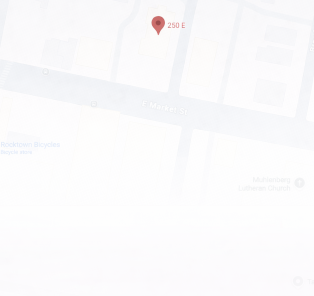A 1031 exchange, also referred to as a tax deferred exchange or like-kind exchange, is a simple method of selling one qualified property and purchasing another qualified property within a set time frame. Named after the IRS code section that created it, this simple strategy allows you to qualify for a deferred gain treatment. Simply put, a 1031 exchange represents an IRS-approved deferral of capital gain taxes. While a normal “buy and sell” real estate transaction is taxable with the IRS, a 1031 exchange is not. Call our Virginia 1031 Exchange Lawyer for help with your situation.
By completing a proper 1031 exchange, you can essentially change the form of your investment without cashing out or recognizing any capital gains. This method allows your investment to continue to grow tax deferred.
There is no limit on how many times or how frequently you can carry out a 1031 exchange. But the US tax code and treasury regulations outline a few foundational rules that must be followed for a proper 1031 exchange. First, the total purchase price of the replacement “like kind” property must be equal to, or greater than the total net sales price of the relinquished real estate property. Second, all the equity received from the sale of the relinquished real estate property must be used to acquire the replacement “like kind” property.
In regards to the first rule, the requirement that the properties be of “like kind” refers simply to the use of these properties. Both the old and the new properties must be held for investment or utilized in a business. The title must also be mirror image. Section 1031 requires that the person listed on the old property be the same person listed on the new property.
For a legal consultation with a personal injury lawyer, call (434) 817-3100
In regards to the second rule, to defer the entire amount of tax on the sale of the first property, the new property must be of equal or greater value. This means two things. First, the new property has to be of equal or greater value of the one which is sold. Second, all of the cash proceeds must be reinvested. If you participate in a 1031 exchange but have cash proceeds from the first sale that are not reinvested into the second property, that cash will be taxed according to applicable rates.
It must be understood that this provision is only for investment and business property. So, it will not apply if you choose to swap your primary residence for a new home. However, as with most of the IRS tax code, there are numerous exceptions and caveats that must be carefully considered when attempting to initiate and fulfill a 1031 exchange.
1031 exchanges are also subject to strict time and money handling requirements. For example, to complete a proper 1031 exchange, it is crucial that the proceeds from the first sale be given to a qualified intermediary, that replacement properties be identified in a specific fashion, and that all proceeds be accounted for on both transactions.
Sellers cannot touch the money in between the sale of their old property and the purchase of their new property. The IRS Code requires sellers to use a qualified intermediary who will act as the exchange partner and handle the money. The person serving as your qualified intermediary must be an independent third party and cannot be a friend, family member, or business associate.
As you can see, a 1031 exchange offers a great opportunity for a person to avoid paying taxes on the sale of property that he or she intends to rollover into a new property. But you can also see that there are multiple requirements and conditions that must be met in order to reap this benefit and avoid severe tax consequences in the future. It is very important to have the guidance and legal expertise of qualified Virginia 1031 exchange attorneys.
Virginia 1031 Exchange Lawyer Near Me (434) 817-3100
If you would like to learn more about a 1031 tax-deferred exchange or are interested in completing a like-kind exchange, please contact Gregory M. Johnson, a Virginia 1031 exchange attorney at MartinWren, P.C., by calling (434) 817-3100. The 1031 exchange attorneys at MartinWren, P.C. offer a high level of tax and real estate expertise and provide personal service to help you understand the procedures and requirements to complete a successful and tax free 1031 exchange.
Call (434) 817-3100 or complete a Case Evaluation form



